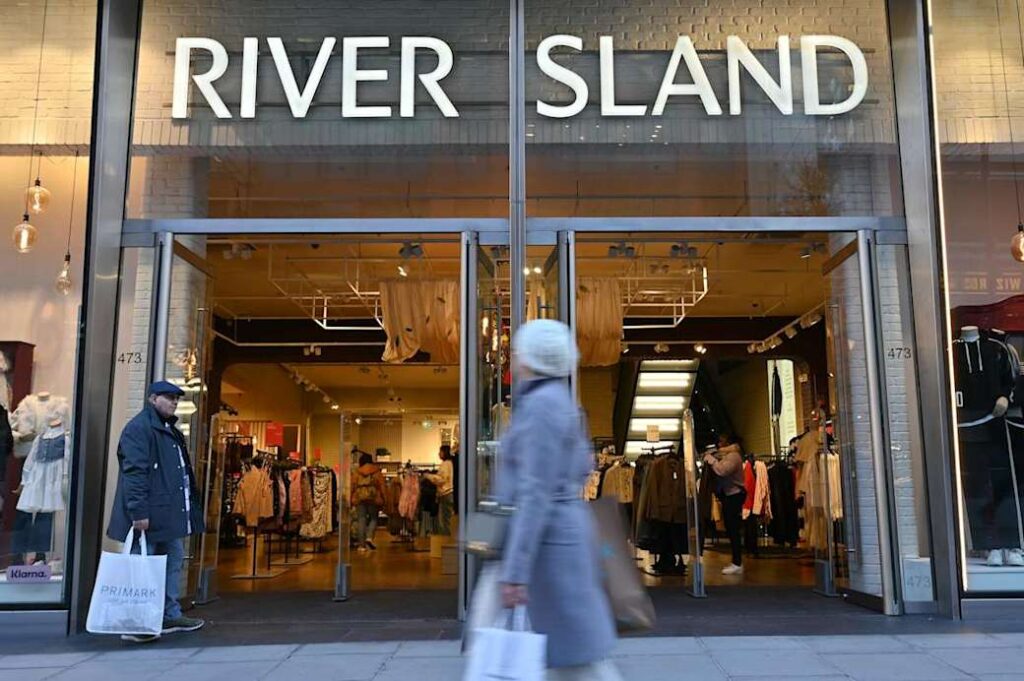UK Retailer Announces 33 Store Closures, Threatening Hundreds of Jobs
River Island’s Store Closures and Restructuring Plan
On June 20, 2025, reports emerged that River Island, a major UK high street fashion retailer, plans to close 33 of its 230 UK stores, putting hundreds of jobs at risk. This move is part of a radical restructuring plan aimed at addressing a significant slump in trading and reversing financial losses. Additionally, 71 more stores are at risk of closure, depending on the outcome of negotiations with landlords to secure improved rental deals. The retailer, which employs approximately 5,500 people, has hired advisers from PwC to oversee the restructuring process, with proposals set to go to a vote by the company’s creditors in August 2025.

Background on River Island
Founded in 1948 as Lewis Separates and later known as Chelsea Girl, River Island was rebranded in the 1980s and has grown into a prominent family-owned fashion retailer with 230 stores across the UK. Currently led by CEO Ben Lewis, the nephew of the founder, who returned to the role in February 2025 after a previous stint from 2008 to 2019, the company has been a staple of British high street fashion. However, like many traditional retailers, River Island has faced challenges due to changing consumer habits, increased competition from online rivals such as Shein, and rising operational costs.
Financial Struggles and Rationale for Closures
River Island reported a £33.2 million loss in 2023, with sales declining by 19%, reflecting a challenging trading environment. The retailer has attributed the planned closures to the “migration of shoppers from the high street to online” and higher costs associated with running physical stores, including rents and business rates. These pressures have been compounded by weaker consumer spending, driven by inflation and the cost-of-living crisis, as well as competition from cheaper online retailers. The restructuring plan aims to streamline operations, reduce costs, and secure the company’s future as a profitable business.
The company has stated that recent improvements in its fashion offerings and in-store shopping experience are showing positive results, but the restructuring is deemed necessary to ensure long-term viability. River Island has expressed regret over potential job losses, emphasizing efforts to keep redundancies to a minimum.
Details of the Restructuring Plan
- Store Closures: River Island plans to close 33 of its 230 UK stores by January 2026. The specific locations of these stores have not been publicly confirmed, but Glasgow, which has five River Island shops (Argyle Street, Glasgow Fort, The Forge Shopping Centre, Silverburn Shopping Centre, and Buchanan Galleries), is among the areas potentially affected. It remains unclear whether any Scottish stores are included in the confirmed closures.
- Additional Stores at Risk: A further 71 stores could face closure if negotiations with landlords fail to secure favorable rental agreements. These talks are critical to the retailer’s strategy to reduce overhead costs.
- Job Losses: With approximately 5,500 employees, the closure of 33 stores is expected to result in hundreds of job losses, though exact figures have not been disclosed. The potential closure of an additional 71 stores could further increase redundancies.
- Creditor Vote: The restructuring plan requires approval from River Island’s creditors—companies or individuals owed money by the retailer—in a vote scheduled for August 2025. If approved, the plan is expected to secure fresh funding to support the company’s turnaround efforts.
- PwC Involvement: Advisers from PwC have been appointed to oversee the restructuring process, ensuring that the proposals are financially viable and comply with legal requirements.
Broader Context of UK Retail Challenges
River Island’s announcement is part of a wider wave of store closures and job losses in the UK retail sector. The Centre for Retail Research (CRR) estimated that approximately 170,000 jobs were lost in UK retail in 2024, the highest since 200,000 in 2020 during the COVID-19 pandemic. In 2024, around 13,500 stores closed, with 38 major retailers entering administration, resulting in over 7,500 store closures and 55,000 job losses. The CRR predicts an even bleaker outlook for 2025, forecasting 17,300 store closures and approximately 200,000 job losses, driven by factors such as:
- Shift to Online Shopping: The rise of e-commerce, accelerated by the COVID-19 pandemic, has significantly reduced footfall in physical stores. A Retail Bulletin report noted that 91% of 25- to 34-year-olds shop online, with over 25% of retail sales in textiles, clothing, and footwear occurring through online channels.
- Rising Costs: Inflation, increased energy bills, and higher business rates have strained retailers’ finances. The Labour government’s October 2024 budget, which included an increase in employer National Insurance contributions and a planned rise in the minimum wage, has further pressured retailers like River Island.
- Competition from Online Rivals: Cheaper online retailers, such as Shein, have disrupted traditional high street chains by offering lower prices and faster fashion cycles.
- Changing Consumer Habits: Post-pandemic shifts, such as remote working and a preference for casual attire, have reduced demand for formal and mid-market fashion, impacting retailers like River Island.
Other retailers facing similar challenges in 2025 include:
- Poundland: Announced plans to close 68 shops and two warehouses, putting hundreds of jobs at risk following its acquisition by Gordon Brothers.
- Quiz Clothing: Entered administration and closed 23 stores, with around 200 jobs at risk.
- New Look: Accelerated the closure of approximately 90 of its 364 stores, with hundreds of job losses expected.
- Sainsbury’s: Closed all in-store cafés, patisserie, pizza, and hot food counters, cutting 3,000 jobs.
- Hobbycraft: Planned to shut nine stores by mid-July 2025.
Public and Media Reaction
The announcement of River Island’s planned closures has sparked concern across the UK, particularly in areas with multiple stores, such as Glasgow. Media outlets, including Sky News, The Herald, Glasgow Times, and Daily Mail, reported on the restructuring, highlighting the potential impact on employees and local communities. Social media posts on X reflected similar concerns, with users like @sandieshoes noting, “More to come I suspect,” indicating fears of further retail closures. Another user, @Zicutake, emphasized the scale of the restructuring, stating that “thousands of jobs” could be on the line if the additional 71 stores close.
Implications and Outlook
River Island’s restructuring plan reflects a broader trend of UK high street retailers adapting to a rapidly changing retail landscape. The closure of 33 stores, with the potential for 71 more, aims to reduce costs and focus on more profitable locations, likely those with higher footfall or better rental terms. The involvement of PwC and the creditor vote in August suggest a structured approach to securing the company’s future, potentially through fresh investment to bolster its online presence and in-store experience.
However, the plan carries significant risks:
- Job Losses: The loss of hundreds of jobs will impact employees and local economies, particularly in areas heavily reliant on retail employment.
- High Street Decline: The closure of River Island stores adds to the ongoing erosion of UK high streets, with the CRR warning that independent shops, in particular, face extinction within 15 years.
- Consumer Confidence: Continued store closures may further dampen consumer confidence, as the visible decline of high street brands signals economic challenges.
River Island’s efforts to minimize job losses and negotiate rental deals indicate a commitment to balancing cost-cutting with workforce preservation. The outcome of the creditor vote in August 2025 will be critical in determining whether the retailer can secure the funding needed to execute its turnaround strategy and remain competitive in an increasingly online-driven market.
Conclusion
River Island’s plan to close 33 UK stores by January 2026, with 71 more at risk, is a response to a £33.2 million loss in 2023 and a 19% sales decline, driven by the shift to online shopping, rising costs, and competition from online rivals like Shein. The restructuring, overseen by PwC and subject to a creditor vote in August 2025, aims to secure the retailer’s future but puts hundreds of jobs at risk. This move reflects broader challenges in the UK retail sector, which saw 170,000 job losses in 2024 and faces a projected 200,000 in 2025. As River Island navigates these challenges, its success will depend on adapting to new consumer habits and securing favorable financial terms to sustain its 77-year legacy on the British high street.
